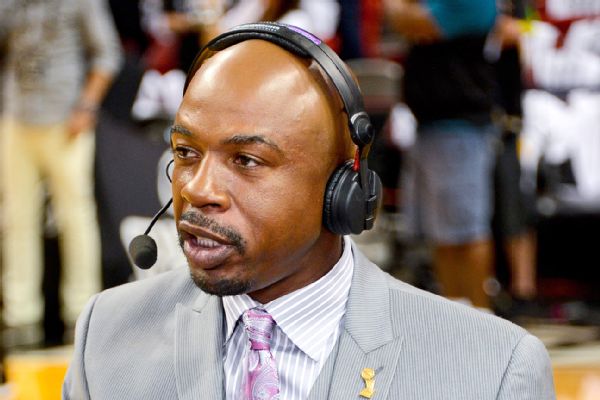NBA Analyst Greg Anthony is back in court again to enter a plea deal. On January 16th, Anthony solicited a prostitute through the website Backpage. She turned out to be part of a police sting and now he will be completing community service and paying fines. His reputation as a sports announcer is tarnished forever and the media plasters his face to the headlines.
While some may view his actions immoral, what crime has he really committed? In practice, Anthony and another adult were going to have consensual sex. If there is an exchange of money, a harmless act of pleasure is criminal? This case is one of 75,000 that happen every year in the U.S. In spite of criminalization, the sex trade has continued to be a lucrative industry. Of course, prostitution laws are also enforced like every other law: by threats and acts of state aggression.
The world’s oldest profession has been basically illegal in the U.S. since the federal Mann Act of 1910. Since then, tax payers have racked up quite the bill. In 1985, the first of very few cost-benefit analysis of prostitution laws determined that each arrest cost taxpayers $2,000. On average, cities were spending well over $3 million annually just to cover police expenditures. Costs for prosecution and “corrections”, which is euphemistic at best, averaged over $4 million for large cities.
All of that may be acceptable if prostitution laws had any benefit.
Over the course of a year, well over two million violent crimes were reported in the 16 study cities. However, no arrests were made in 83% of cases. If police weren’t spending 42 man hours per case, they would have more resources available to fight real crime.
Legalization would significantly benefit both taxpayers and working girls alike. According to the numbers, sex sells. In the U.S., prostitution generates $14.6 billion in revenue, although it could be much higher. Cities are strapped for cash, so the revenue would be welcomed by taxpayers and desperately needed by local governments run amuck.
Women who choose to be a prostitute are forced into a criminal underworld. They cannot report violence from customers or employers, let alone be adequately protected. It also drives down wages. An empirical analysis of street level prostitution found that women make about $27 per hour. However, given their limited hours, that translates to about $20,000 a year. Legal markets in Nevada are much more lucrative because they are more openly competitive. Ladies work in well maintained brothels making an average of $100,000 every year.
Aside from their economic gain, working girls would be safe in a legal environment. Employers, regardless of their industry, have an obvious interest in employee safety. The risk of law suits, downtime, and compensation serve as an incentive to that end. This would especially be true in prostitution because of the market dynamics. Legitimate businesses would not allow customers to enter only to beat their employees, nor would an employee want to work in a hostile environment.
Current prostitution laws are more than just high costs and lost gains. They are anti-liberty. The individual has absolute ownership of their body. Thus, voluntarily selling it at an agreeable rate and free from aggression is perfectly acceptable under that premise. It’s not the government’s job to define your moral compass and they are in no position to lecture us about morality. In legal terms, abortion is permissible on the grounds of “right to bodily privacy and choice”, yet prostitution laws remain inconsistent with the Supreme Court’s opinion on Roe vs Wade.
Current prostitution laws close the door to a major opportunity for economic growth. If legalized, there would be significant positive gain for everyone. Government cannot legislate morality or criminalize high demand markets. The costs of doing so are too high and unsustainable.
[divider]About the Author[/divider]
Grant Phillips is The Modern Libertarian. He writes about economics and libertarian philosophy on his website and spreads the word of freedom on his Facebook page and Twitter. A self-proclaimed thinker, Grant applies libertarian principles to social and economic issues. He is a gun enthusiast, avid golfer, and freedom ninja.




